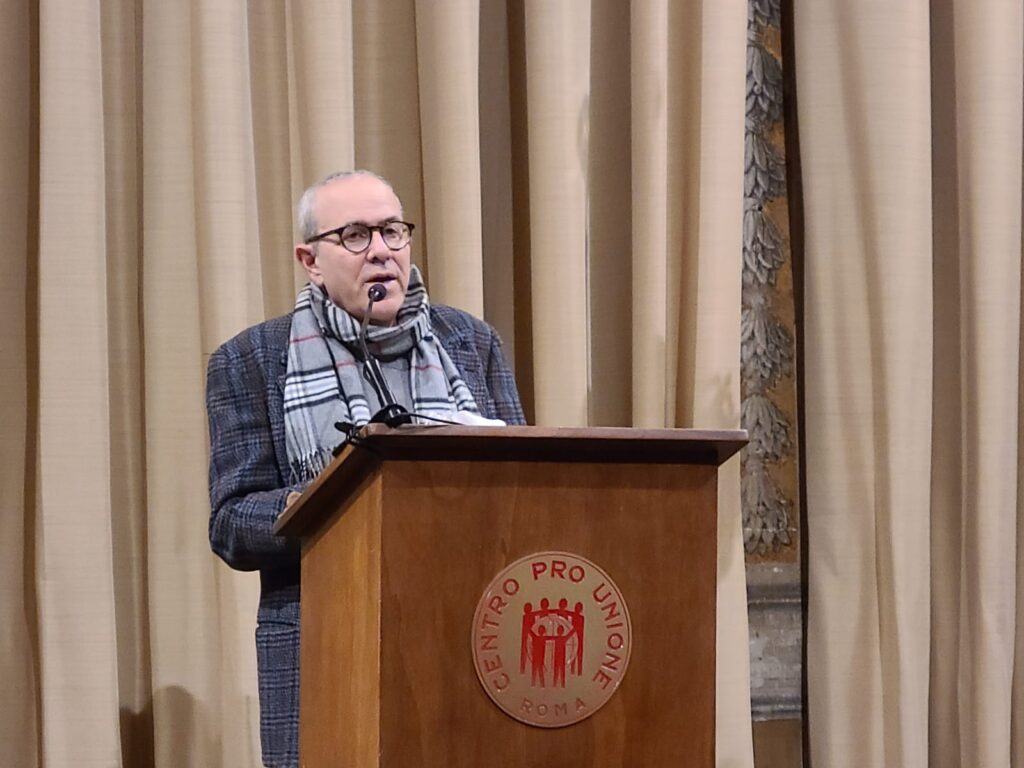On February 23, this year’s Russell Berrie Fellows had a community dinner in Rome with visiting Israeli professor, Menachem Lorberbaum. Professor Lorberbaum recently arrived in Rome to teach his annual course to the Fellows. “I feel blessed that there has been a Roman chapter in my life,” shares Prof. Lorberbaum. “Every visit to Rome achieves this on so many different levels that it has become a pilgrimage to the soul.”
This year’s class, “Creation and History in the Hebrew Bible,” focuses on both the cosmological and eschatological aspects of God in the Hebrew Bible—divine intervention as well as human salvation. For Prof. Lorberbaum, teaching this course has been insightful in its drive to “encounter the degree to which what we read is conditioned by our prior expectations of the revelatory word.” “We are so busy defending our intuited point of departure,” continues Prof. Lorberbaum, “that we are no longer challenged by the prophetic moment. We have been insulated and we must all (myself included) learn again to listen and read and to experience this opening as a faithful empowerment.”
During his stay in Rome and on top of this three-week intensive course, Prof. Lorberbaum will also be offering a paper during one of the sessions of a workshop gathering Jewish and Catholic scholars from Europe, Israel, and the Middle East, co-sponsored by the John Paul II Center for Interreligious Dialogue. In this framework there will also be a public lecture on “Roman Catholics and Jews after Vatican II: Taking Stock for the Future” that will take place at the Angelicum on Wednesday, March 1 at 5pm. Professor Karma Ben-Johanan and Professor Gavin D’Costa, two leading scholars and dialogue practitioners, will discuss the controversial challenges facing Jews and Catholics in their conversation and cooperation after the Second Vatican Council.
Prof. Lorberbaum’s workshop is on the theme: “Christians in Jewish Religious Zionist Thought.” Prof. Lorberbaum highlights the “courage of Nostra Aetate and its significance highlights for us the challenges of healing in our different faith traditions.” “Declarations,” Prof. Lorberbaum continues, “point the direction to an arduous path of ongoing true work, and this necessarily brings to the surface the most profound, tenacious and authentic resistances in our respective traditions. We are reforging not only the burden of faith but the meaning of faithfulness.”
Having worked with several cohorts of Fellows, Prof. Lorberbaum notes that many in these “global groups” “are at the very forefront of encountering secular society and civil society at their points of difference—not to say enmity.”
“Inter-faith dialogue reflects back to us from another and external perspective our own religious posture: the place we speak from but cannot see,” remarks Prof. Lorberbaum, who expresses his gratitude for “all the wonderful Fellows over the years, the Faculty of Theology of the Angelicum, and the Russell Berrie Foundation for making this all possible.”

